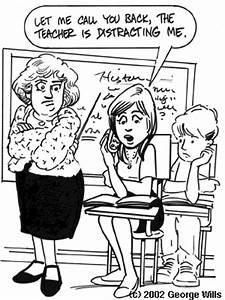Canada
New cellphone restrictions in
Ontario classrooms

The Ontario government announced last Thursday it will be moving forward with plans to enforce an Ontario cellphone ban in classrooms. The new restrictions strictly apply to instruction time at school and will come into effect on Nov. 4, 2019.
Although the ban prevents students from using their phones in the classroom, there are several exceptions, for example, students will be able to access their mobile devices for health and medical purposes, education purposes (if directed by an educator) and to support special education needs.
Education consultation surveys from last year discovered that approximately 97% of parents, students, and teachers supported some form of restriction on phones in class, according to the government sources. It was in response to that feedback that the Provincial Code Of Conduct was updated to include the new restrictions.
"When in class, students should be focused on their studies, not their social media," said Stephen Lecce, Minister of Education in a news release. "That's why we are restricting cellphones and other personal mobile devices in the classroom, while making sure technology is available to help students achieve success in the digital economy and modern workforce."
According to the Ministry, children can bring a personal mobile device to school. but "use is restricted during instructional time in elementary and secondary school classrooms in order to prevent distractions and maximize learning time.”
Students will still be able to use their personal mobile devices during recces and lunch.
According to CP24, the Toronto District School Board had previously ditched a cellphone ban policy implemented in 2011 after officials determined that it was too difficult to enforce.
“Maybe in math class you’re using it simply as a calculator, maybe in history class you’re using it for research – it makes sense,” a spokesperson for the school board, Ryan Bird said according to the media outlet. “But, a distraction is a distraction, regardless of if it’s a cellphone or not.”
Red Bull allegedly violated Quebec's Consumer Protection Act by "failing to inform consumers of the inherent dangers concerning the ingestion of its caffeinated energy drinks" according to LPC Avocats, the law firm in charge of the case.
Canadians who submit a valid claim through the Energy Drink Settlement Program can receive up to $10 in compensation. Anyone filing a claim has until 5:00 p.m. on Oct. 14 to do so.
The settlement agreement states that Red Bull has agreed to update its Canadian website to include a link to Health Canada warning Canadians of the potential risk when consuming caffeinated energy drinks with alcohol, after allegedly claiming on its website and labelling that Red Bull "improves alertness or increases concentration."
LPC Avocats' Joey Zukran said it has only been two days since Canadians could begin applying for a claim and the reaction from consumers has been extremely positive.
Red Bull said in a statement to CBC News that they "settled this Canadian lawsuit — a virtual copycat of a U.S. suit that was settled five years ago — to avoid the distraction of litigation in Canada. Red Bull's marketing has always been witty, truthful and accurate."
That's a reference to a U.S. suit that was settled back in 2014 where Red Bull agreed to pay out up to $13 million US in compensation. The complaint in that case was around misleading advertising, specifically that customers were misled to believe that the caffeinated energy drink "gives you wings".
There will be a court hearing to approve the latest settlement on December, 17, 2019.